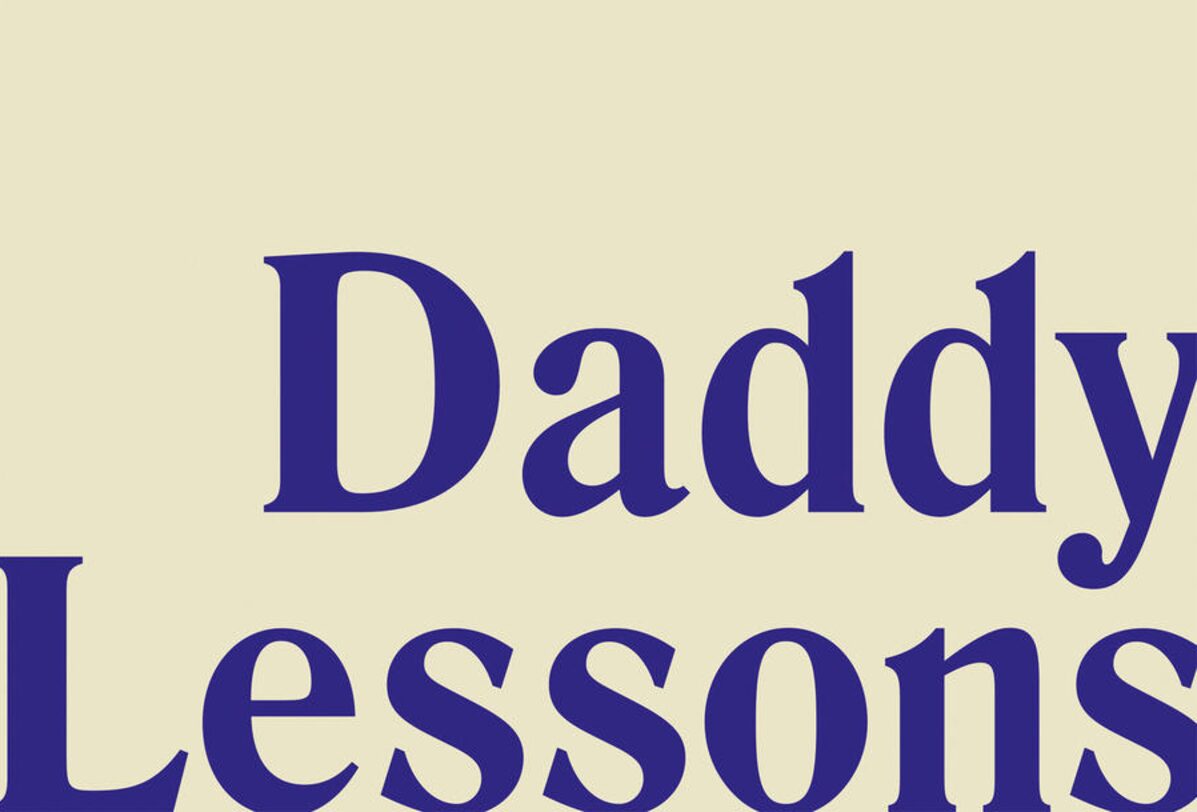
Daddy Lessons
Steacy Easton
Coach House Press, 2023
Review by Roz Milner
Growing up queer in the Canadian prairies can be hard enough, but for someone who’s neurodivergent, it can be almost impossible to imagine. How does one navigate lines of desire and want when they struggle with social cues and fitting in? In their new memoir, Daddy Lessons, culture writer and artist Steacy Easton takes readers into their troubled upbringing. It’s a book of contrasts—tender and horny, learned and coarse—and it’s a dark, interesting ride.
It follows Easton from their youth in Mormon communities up through boarding school to eking out an existence and lingering on the fringes of the cowboy scene. They get picked up, cruise at bars, and have lots and lots of sex. It’s not a glamorous life, nor does it seem like an easy one. But to their credit, Easton doesn’t flinch away from the rough and dark parts of their story: the abuse, the longing, the anonymous sex.
Early in Easton’s life, their dad ran off and left Easton to be raised by their mom. They were something of a latchkey kid: Easton’s mom worked thirteen hours a day, leaving them to be raised by neighbours and after school clubs. “These early houses, this early child care – some were pious, some were rough, and they taught me,” writes Easton. They learned to navigate the world as a queer, neurodivergent teenager. By the time they were in grade seven, Easton was sent to a boarding school, a place where they discovered sex and sexual assault, both from older boys and adults. Easton writes of having sex in the woods, of being molested and raped. It is not an easy read.
“This is pornography in the sense that it is explicit,” writes Easton. “This book will be of the body, will be the piling of signs.” And indeed, throughout, Easton writes of their queer longing: of the backroom sex at gay bathhouses, of hookups in mall bathrooms, of fucking in remote hotel rooms. They write of the collision of faith and desire, and what happens when the body wants something counter to what the mind believes in. They delve into the way a queer, nonbinary, and neurodivergent person straddles the lines of a society they don’t quite fit into, and how predatory adults can exploit a person like Easton.
Easton’s book positions itself somewhere with autofiction authors like Herve Guibert and McKenzie Wark, who pull back their curtain in similar ways. But where Wark writes about finding herself through sex and Guibert about the intimate relationship between him and Focault, Easton’s journey is about learning the difference between consent and abuse. They move between their desires for sex and companionship and the realization that, as a young teen, they aren’t able to consent and the people they’re after are predators. They also struggle to articulate what they desire. “I was always a queer kid who wanted to do things with queer adults and a queer kid who wanted to do things with queer kids,” they write. “Some of the queer adults who took care of me allowed for that possibility, and other queer adults stole that possibility from me.”
Indeed, throughout the book, one reads about Easton being used by people who only want them for sex. There’s the cowboy who they travel way out of their way to see, only to be kept in a hotel room until their cowboy is horny and drunk; there’s the missionary who invites them for sex but drops them when caught. In some ways it’s hard not to feel for Easton: they keep looking for a daddy figure in all the wrong places, and even though they know the deal, it still feels like they’re being treated as disposable. One’s heart aches when a cowboy abandons them in a hotel room for hours at a time: “I spent a long night alone, back in my room, listening to the party outside, trying to read…”
Throughout the book, Easton casually mentions authors like Eve Kosofsky Sedgwick, Samuel R. Delany, and others. And while Daddy Lessons is informed by queer theory and queer writers, it would be a mistake to think it’s a dry academic book. When Easton writes of longing, they do so in language that’s direct and erotic; they get the emotions across: “It’s not a penetration but an argument between bodies, between the propulsive one and the engulfing one, between the active and the passive, a pas de deux of barely present consent.”
In the way it draws on both high and low cultures—Sedgwick mixes with cowboy smut, hookups with theology—and its frank depictions of casual sex, Daddy Lessons is not a traditional memoir. It’s a cautious story about someone who didn’t fit into an assigned category and didn’t know how to express themselves but slowly figured it out through their experiences with various gay daddy figures. At times, it’s a challenging read, and Easton’s prose is sometimes a little stiff, but on the whole, it’s an engaging memoir.
Roz Milner (she/her) is a freelance writer and critic based in the Toronto area. Her work has appeared in Broken Pencil, Lambda Literary, Xtra, The Quarantine Review, The Temz Review, and many other places. She is currently working on a collection of short fiction.